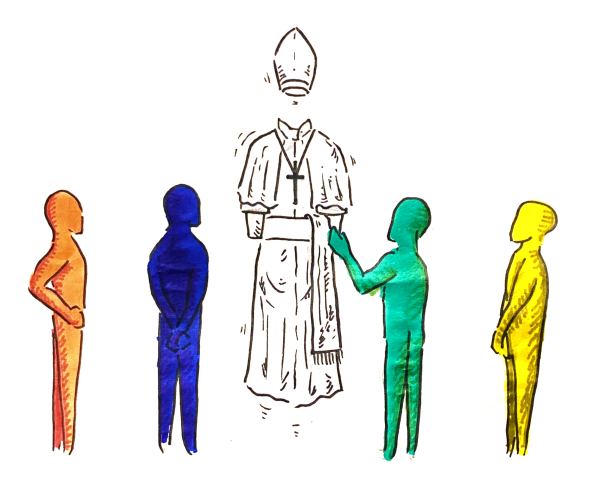Learn How to Listen
As a result of a community that constantly questions and challenges what is widely accepted, Hotchkiss has always been an increasingly diverse space. We strive to create an environment in which each individual feels welcomed and at home. For years, alumni have upheld this culture and championed change, whether it be in medicine, art, or politics.
As members of such a community, it is our responsibility to ensure these conditions – inclusion and understanding – are upheld. In doing so, we must respect and value the power of difference. Respecting ideological diversity will, in turn, allow us to better equip ourselves for the world beyond Hotchkiss. Yet it is often difficult to voice your political opinion here if it does not align with the majority.
At Hotchkiss, there are many initiatives that encourage open and honest discussion. “Community Conversations,” designed by Dr. Myers and the Council on Diversity and Inclusion, has been effective at providing a place for students to speak freely, offering both observations and questions. “Fishbowls” are often held to discuss community issues, and many clubs have created safe, comfortable places to discuss controversies. As a board member of Hotchkiss Political Union, I have witnessed incredibly intelligent and perceptive discourse, and it always amazes me the extent of knowledge and insight that students share.
Often, however, I feel as though these conversations could benefit from the addition of differing opinions, preventing echo chambers from developing and educating people about why others may think differently. Such opinions would open conversations and potentially encourage people with minority opinions to speak up. Just because a opinion is in the minority doesn’t make it any less valuable.
The expression of different opinions is especially important during discussions of political issues. It’s obvious that not everyone will align exactly with your political views, and as students of Hotchkiss, we should all be mature enough to realize this. Individually, we need to work on forgetting preconceived notions like “liberal” and “conservative” and listening to what someone is actually saying rather than what we think they will say.
Ivy Bhandari ’21 recently attended a conference at the University of Chicago focuing on freedom of expression and open discourse; she said, “It is important to be receptive to others’ opinions before taking either an offensive or defensive view. Usually, people’s opinions don’t come from a place of anger or hatred.”
It can be hard to hear an opinion that is different from your own, but often listening and understanding where someone’s opinion comes from can help you understand what they believe and why. Ivy said, “Asking questions before making assumptions can lead to a more productive conversation, instead of only hearing what you want to hear in a conversation.”
If you initially are offended by a remark made, instead of immediately become defensive and closed off, ask that person to elaborate on why they believe that. This will create more of a discussion than an argument.
I will admit that I am stubborn. I don’t like to be wrong, and I take a while to accept it, but if you look at the world around us, it’s made up of different opinions. People choose to live their lives in different ways; they choose to vote for who they want and express themselves in the way they feel is appropriate. We don’t shoot someone down because they decide to eat something different for breakfast than we do, so why would we judge when their political beliefs differ from ours?
Our country is fundamentally based on the idea that we have a unity of purpose. It’s time to put aside whether or not we think we are right because when we become too fixated on our beliefs and block out what people try to say we miss out on valuable knowledge and perspective.





